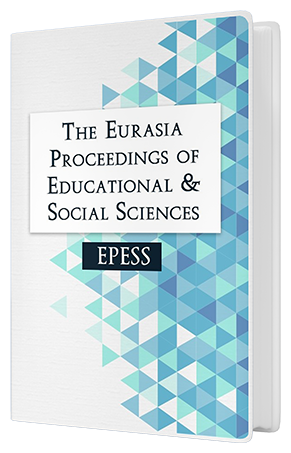Using Multimedia Learning Objects in Special Needs Classroom
DOI:
https://doi.org/10.55549/epess.1196827Keywords:
Multimedia learning objects, Special needs, Autism, Down syndromeAbstract
The research project highlights the use and creation of multimedia learning objects to improve the learning of special needs students. The researcher investigated how the audiovisual context had progressed into a new approach to learning that sharpens the analytical reasoning and rational social skills of special needs students. This research proposed a two-group pre-test – post-test qualitative research to measure the impact of multimedia learning objects in improving the learning abilities of students with special needs in schools. The experiment aimed to see that a multimedia education paradigm may benefit two groups of students with different learning impairments. It was aimed toward students with Autism or Down Syndrome under the age of 15. Many of these students are taught in ordinary special needs classrooms without special intervention tools. The findings suggest that multimedia technology in learning can assist students with learning disabilities. The well-thought-out system benefited autistic students, demonstrating the educational potential of a multimedia system. A plan targeted to one particular disability group may be more effective than a comprehensive system that tries to fulfill the needs of many different disability groups.Downloads
Published
Issue
Section
License
Copyright (c) 2022 The Eurasia Proceedings of Educational and Social Sciences

This work is licensed under a Creative Commons Attribution-NonCommercial-ShareAlike 4.0 International License.
The articles may be used for research, teaching, and private study purposes. Any substantial or systematic reproduction, redistribution, reselling, loan, sub-licensing, systematic supply, or distribution in any form to anyone is expressly forbidden. Authors alone are responsible for the contents of their articles. The journal owns the copyright of the articles. The publisher shall not be liable for any loss, actions, claims, proceedings, demand, or costs or damages whatsoever or howsoever caused arising directly or indirectly in connection with or arising out of the use of the research material. All authors are requested to disclose any actual or potential conflict of interest including any financial, personal or other relationships with other people or organizations regarding the submitted work.




